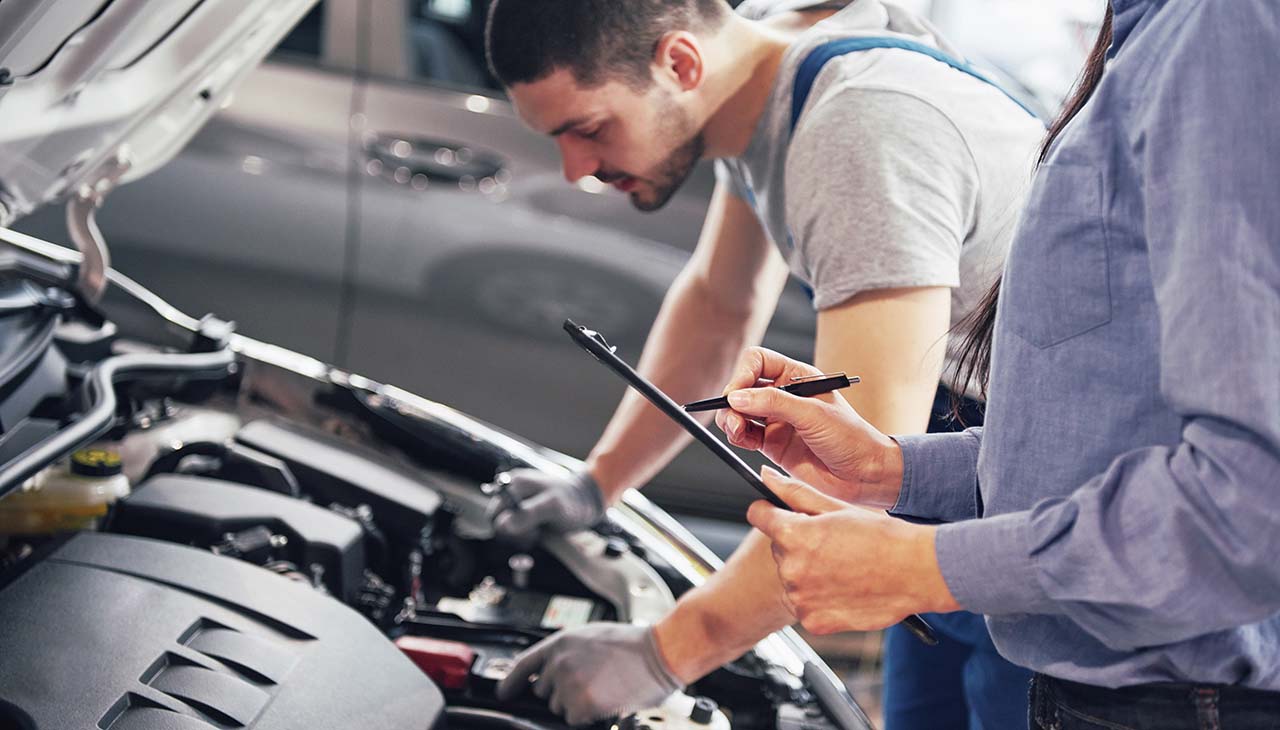Regular maintenance is the linchpin of vehicle longevity and reliability. By adhering to a routine maintenance schedule, car owners can prevent mechanical failures, enhance performance, and maintain the vehicle’s value. This guide aims to outline the essentials of vehicle maintenance, from oil changes to tire rotations, to help ensure your car runs smoothly and safely for years to come.
Check Fluid Levels
Keeping fluid levels within their recommended ranges is crucial for the smooth operation of your vehicle. Here’s a brief overview of the fluids you should check regularly:
- Engine Oil: Essential for lubricating the engine’s moving parts, preventing excessive wear. It’s advisable to check the oil level monthly and change it as recommended by the vehicle manufacturer.
- Coolant: Prevents the engine from overheating and should be checked periodically, especially before summer and winter.
- Brake Fluid: Essential for the brake system’s hydraulic function. Low levels can lead to reduced braking performance or failure.
- Power Steering Fluid: Enables easier steering. If low, steering can become hard and may damage the system.
- Transmission Fluid: Necessary for smooth gear shifts. Low transmission fluid can lead to gear slippage or failure.
- Windshield Washer Fluid: Though not critical for the vehicle’s operation, it is vital for maintaining visibility in adverse weather conditions.
Regularly checking these fluids and maintaining them at their proper levels can significantly contribute to your vehicle’s longevity and safety.
Inspect Tires
Tire Pressure
Regularly checking tire pressure is vital for safe driving and can help extend the life of your tires. Underinflated tires can affect the vehicle’s handling and lead to increased fuel consumption. Overinflated tires, on the other hand, can reduce traction and result in uneven wear. Refer to your vehicle’s manual for the recommended tire pressure and check it at least once a month using a reliable tire pressure gauge.
Tire Tread Depth
The tread on your tires is crucial for providing the necessary grip on the road, especially in wet conditions. A simple way to check tread depth is the “penny test.” Insert a penny into the tire’s tread groove with Lincoln’s head upside down. If you can see all of Lincoln’s head, it’s time to replace the tire. Most states legally require a minimum tread depth of 2/32 inches.
Rotate Tires Regularly
Tire rotation is a crucial maintenance task that ensures even tire wear and extends the lifespan of your tires. Different vehicles may wear tires at different rates, especially front-wheel-drive cars where the front tires do more work. It’s recommended to rotate your tires every 5,000 to 7,000 miles, or as specified in your vehicle’s owner’s manual. Regular rotation can also help maintain better vehicle handling and traction.
Change Filters
Changing your vehicle’s filters is a critical aspect of routine maintenance that helps ensure optimal performance and longevity. Here are key filters you need to check and replace according to the manufacturer’s recommendations:
- Oil Filter: The oil filter plays a crucial role in protecting your engine by trapping particles and impurities that can cause damage. A clogged oil filter can reduce engine performance and, if left unchecked, result in engine failure. Typically, it’s advised to replace the oil filter with every oil change.
- Air Filter: Your car’s air filter prevents dust, dirt, and other environmental contaminants from entering the engine. A clean air filter is essential for maintaining proper airflow, which can significantly affect your vehicle’s efficiency and emissions. It’s generally recommended to inspect the air filter annually and replace it as needed, though driving in high-dust areas may require more frequent changes.
- Fuel Filter: The fuel filter is responsible for keeping contaminants and particles out of your fuel system. Over time, a dirty fuel filter can lead to poor engine performance, reduced mileage, and, in severe cases, engine shutdown. Replacement intervals can vary widely depending on the vehicle and driving conditions, so consult your vehicle’s manual for specific recommendations.
Replace Spark Plugs
Spark plugs are crucial for the engine’s ignition system, igniting the air-fuel mixture in the combustion chamber. This ignition is what powers the engine and keeps your vehicle moving. Over time, spark plugs can degrade, leading to inefficient combustion, reduced power, and poor fuel efficiency. A misfiring spark plug can also cause increased emissions and even damage to the engine’s catalytic converter. Therefore, keeping your spark plugs in good condition is essential for maintaining optimal engine performance and fuel efficiency. Most manufacturers recommend replacing spark plugs every 30,000 to 100,000 miles, depending on the vehicle and spark plug type. Regular inspection and timely replacement of worn-out spark plugs can help ensure your engine runs smoothly, efficiently, and economically.
Check Brakes
Brake Pads
Regular inspection of your brake pads is essential for maintaining your vehicle’s safety and braking performance. Brake pads wear down over time due to the friction used to stop your car. When the thickness of the brake pads diminishes to less than 1/4 inch (about 6 mm), it’s time to consider replacing them. If you hear a high-pitched squealing sound when you apply the brakes, it’s a clear indicator that your brake pads are worn and need immediate attention.
Brake Discs
Brake discs, or rotors, work in conjunction with the brake pads to stop your vehicle. Over time, they can become worn down or warped from heat and usage. During a brake inspection, check for any visual signs of wear, such as grooves or scoring, and feel for any irregularities in the surface. If the discs are significantly worn or damaged, they may need to be resurfaced or replaced to maintain optimal braking performance.
Brake Fluid Levels
Brake fluid is vital for the hydraulic brake system to function correctly. Low brake fluid levels can lead to reduced braking power or failure, posing a serious safety risk. Check the brake fluid reservoir regularly and top it off if necessary. It’s also important to change the brake fluid according to the manufacturer’s recommendations, as old fluid can absorb moisture and lead to brake system corrosion and failure.


